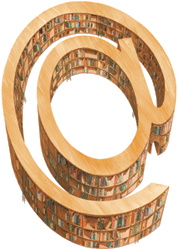Linked Heritage
Linked Heritage (2011-2013) was a project funded through the ICT Policy Support Programme of the European Commission and involves 22 EU countries plus Russia, Israeland hundreds of cultural institutions from every sector (archives, libraries, museums) under ICCU coordination.
In addition to ICCU, the Italian partners were the University Library Centre of the University of Padua, the Information and document systems Office of the National Research Council, the DigiLab centre of La Sapienza University in Rome, the Franca Rame - Dario Fo Archive, the mEDRA European agency for DOI (Digital Object Identifier) registration, and Promoter.
In addition to ICCU, the Italian partners were the University Library Centre of the University of Padua, the Information and document systems Office of the National Research Council, the DigiLab centre of La Sapienza University in Rome, the Franca Rame - Dario Fo Archive, the mEDRA European agency for DOI (Digital Object Identifier) registration, and Promoter.
The main goal of Linked Heritage was to provide more than two million new items for Europeana.
Italian records come from Internet Culturale, the Italian library portal, and were provided through CulturaItalia.
In addition to the specific topic of digital content aggregation, Linked Heritage took on other important issues: first and foremost, multilingualism, with the ambitious goal of creating a Terminology Management Platform (TMP) for the semi-automatic mapping of multilingual terminology in use in all cultural heritage sectors (libraries, museums, archives, publishers); this platformis being completed during the project Athena Plus.
Another research area concerned linked data in the cultural field, a poorly explored sector that was the target of experimental activities, also using data from Italy among other places.
Another important topic the project deals with was the relationship between copyrighted data and online publishers (particularly Europeana); for the time being, Europeana hosts a very limited number of contributions from the publishing sector (both traditional and digital) or from private agencies working in the data sector, since the business model underlying the European portal was born within a framework that stresses public culture, or at least the public dissemination of culture.
Linked Heritage made it possible to explore public-private partnerships and to demonstrate the economic value of Europeana to the business sector.
All of the knowledge acquired and produced within the framework of the project was used to produce e-learning material for university students and professionals in the cultural heritage field.
For more information: ic-cu@beniculturali.it
